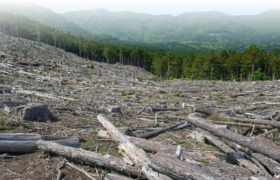The Societies Registration (Amendment) Act 2024, commonly known as the madrassah registration bill, has officially become law with the signature of President Asif Ali Zardari on 29 December 2024. In October 2024, the Senate of Pakistan passed legislation amending 1860’s campanies Act to address the longstanding madrassas registration issue in Pakistan. These madrassas (religious seminaries or schools) play an important role in imparting religious education to local and international students in Pakistan. Many renowned scholars of Islamic jurisprudence (fiqah), Quran and Ahadees have been produced inside these madrassas. Yet, there has been a realization in Pakistan that a large number of students, once passed out of these seminaries, fail to play constructive roles towards nation-building and collective progress of society, as they fail to learn any meaningful skills during their 9-year-long study period in religious schools or madaris. Instead, there have been reports of the negative role they played in spreading sectarian violence, religious extremism, and intolerance towards minorities and consequent events left Pakistan in a very awkward situation within the international community questioning conduct of these Madrassas, the standard of education being provided there, and, most importantly, about financial management of these institutions. The undesired role of some madrassas increased over time due to the prolonged war on terror further complicating the situation for the State. Thus, a comprehensive Reform regarding these Madrassas in Pakistan taking all the stakeholders in confidence was long hoped for.
Significance of Madrassa Reforms Combating Extremism Ideologies
In current era of complex hybrid conflicts affecting much of the Muslim world, combating extremist ideologies are critical strategic imperative for any state, particularly for Pakistan, which has been grappling with religiously motivated terrorism for over two decades. Many madaris in the country have been associated with propagation of extremist ideologies. Pakistan’s history is marked by high-profile sectarian killings, a phenomenon that emerged the 1980s andcontinues to pose significant socio-political challenges. Every year, during the month of Moharram-ul-Haram, thousands of security personnel are deployed across the country to manage the persistent threat of sectarian violence and terrorism.
Another troubling aspect is the lack of an informed worldview among the graduates of these madrassas. Many of them are inclined to address disagreements through violent means, as they are often unable to analyze complex geopolitical issues using established conflict resolution practices. Instead, they interpret various territorial conflicts, alternative viewpoints, and challenges arising from cultural diversity through a binary lens, where everything is either permissible or forbidden.
This oversimplified approach makes it easier for hostile entities to manipulate such individuals by weaponizing extremist ideologies. Their inability to engage with or consider alternative narratives—whether about historical events or contemporary issues— renders them highly vulnerable to manipulation. Consequently, they can be recruited as foot soldiers for militant organizations, often without fully understanding the forces driving their actions.
Educational Integration
Reforming madrassa curricula to include modern subjects is critical for mitigating extremist ideologies and fostering a more balanced worldview among students. These reforms must be implemented urgently to integrate the vast number of madrassa students into mainstream society. By offering opportunities for employment or entrepreneurship, the state can facilitate their socioeconomic transformation. Ideally, the integration of national education and religious curricula should have taken place decades ago, when sectarian extremism was in its infancy and number of madrassas was limited. However, even now, such integration can bridge the gap between formal education and religious instruction. Providing students with a comprehensive education that includes essential life skills which will better equip them to participate in nation-building efforts.
The state must prioritize this reform as the only viable option to bring millions of madrassa graduates the national fold, enabling them to contribute productively to society rather than becoming a challenge for the state.
Regulatory Oversight
Regulatory oversight is a critical component of madrassa reforms. It ensures that madrassas operate transparently, adhere to established educational standards and safeguard the rights and welfare of students.In addition, given the precarious security situation in Pakistan and other parts of the Muslim world, it is of utmost importance that the state security apparatus maintains accurate records of the origins and current whereabouts of all students and staff members in these institutions. This measure is essential for ensuring both national security and institutional accountability.
Financial scrutiny is another essential aspect of regulatory oversight. Pakistan has been on the FATF watchlist for several years due to suspicions of terror financing and money laundering. In this context, the financial monitoring of madrassas becomes even more critical to ensure transparency and compliance with international standards.
Any religious school that fails to cooperate in financial reporting raises concerns about potential misconduct. Unfortunately, several madrassas remain unwilling to comply, further emphasizing the need for strict regulatory mechanisms to address these challenges effectively.
Previous Attempts
Pakistan’s efforts to regulate madrassas are not a recent development. The process began in the 1960s with the formation of a committee under President Ayub Khan’s regime. Later, in 1975, Prime Minister Zulfikar Ali Bhutto launched reforms aimed at modernizing madrassa education.
Unfortunately, both initiatives faileddue to a combination of factors, including resistance from religious circles and a lack of commitment within the state apparatus to implement these strategies effectively. These challenges highlight the deeply rooted complexities in reforming religious education in Pakistan.
In 2002, President Pervez Musharraf introduced a significant reform initiative through the Deeni Madaris (Voluntary Registration and Regulation) Ordinance. This ordinance sought to register madrassas and regulate their curricula to ensure greater transparency and modernize religious education. However, the voluntary nature of the registration process resulted in limited compliance. Many madrassas were reluctant to participate, citing concerns over state interference in their operations. This lack of widespread adoption highlighted the challenges of implementing reforms without mandatory enforcement mechanisms.
In 2014, following the tragic APS attack, the National Action Plan (NAP) identified madrassa reforms as a key component of its counterterrorism strategy. The plan required all madrassas to provide detailed information about their funding sources and operational activities to ensure greater transparency and curb potential misuse of resources. However, the implementation of these measures faced significant challenges. Many religious leaders expressed concerns over perceived state interference, and there were allegations of harassment by authorities, which further complicated the process. These factors hindered the full realization of NAP’s madrassa reform objectives.
The latest amendments have effectively nullified the 2019 agreement between the federal Ministry of Education and Professional Training and Wafaqul Madaris, the collective body representing all madrassa boards in Pakistan.Wafaqul Madaris is led by prominent factions from various Islamic schools of thought.
The 2019 agreement was a comprehensive reform initiative aimed at integrating technical education and contemporary subjects into madrassa curricula. It was signed by prominent religious scholars and representatives of all major Islamic schools of thought in Pakistan, including Mufti Taqi Usmani, Mufti Rahim, Qari Hanif Jalandhri, Professor Sajid Mir, Yasin Zafar, Abdul Majid, Dr. Atta-ur-Rehman, and Haider Najfi. Key features of the agreement included centralized authority, mandatory registration, data transparency, curriculum standardization, financial accountability, engagement with religious leaders, and government support mechanisms. These measures were designed to modernize madrassa education while maintaining its religious essence.
Challenges:
The primary issue surrounding madrassa registration in Pakistan in 2024 is the ongoing controversy and delays associated with the Societies Registration (Amendment) Bill, 2024. This bill has sparked debate, and its implementation has been delayed, creating significant challenges in the registration process. Below are the key points highlighting these challenges:
Legal Complexities
Federal Minister for Religious Affairs, Chaudhry Salik Hussain, has acknowledged that legal complexities are causing delays in finalizing the Madrassa Registration Bill. Despite the long-standing requirement for madrassa registration, the process has faced significant obstacles due to these legal challenges.
Presidential Objections
President Asif Ali Zardari has raised objections to the bill, arguing that existing laws already address madrassa registration, making the new legislation redundant. He expressed concern that the proposed changes could encourage sectarianism and destabilize local communities byallowing multiple madrassas to be established within the same area.
Concerns Over Sectarianism
Some fear that registering madrassas under the new law could escalate sectarian tensions within society. Critics argue that this may lead to conflicts over religious authority and increase the risk of attracting international criticism. This, in turn, could negatively impact Pakistan’s standing with organizations like the Financial Action Task Force (FATF), which monitors the country’s efforts to combat money laundering and terror financing.
Political Tensions
The bill has become a point of contention between the government and religious political parties, especially the Jamiat Ulema-e-Islam-Fazl (JUI-F). Maulana Fazlur Rehman, the partyleader, has accused the government of seeking to divide clerics and politicize the issue of madrassa registration, further intensifying the debate.
Implementation Challenges
Although efforts have been made to streamline the madrassa registration process, such as the introduction of a one-window operation for easier access, many madrassas remain reluctant to comply. Their hesitation stems from concerns over potential government interference in their educational autonomy.
Uncertainty Over Legislative Status
The status of the bill remains uncertain, as it has not yet been signed into law by the president due to his objections. This has led to confusion over whether the bill has been enacted or is still pending approval.
In summary, the key issues surrounding madrassa registration in Pakistan in 2024 include legal complexities, presidential objections to the proposed legislation, concerns about potential sectarianism, political tensions between the government and religious parties, implementation challenges, and ongoing uncertainty regarding the bill’s legislative status.
Suggestions
The proposed legislation addresses two major areas that were also covered in the 2019 agreement. The table below highlights the similarities and differences between the two bills: the previous and the current one.
Similarities/ Convergence
No Madrassa shall teach or publish any literature which promotes militancy or spreads religious/ sectarian hatred.
Every Madrassa shall include basic contemporary subjects in its curriculum in a phased manner.
Differences
Madaris will only be registered under respective District Adm & there will be no central oversight mechanism like DGRE.
Madaris will audit their funds at their arrangements and not through a government-approved auditor.
Madaris will not be required to provide details regarding their funding sources and accounts etc.
Will also not be obligated to provide details/ data of foreign students/ faculty members associated with them.
Madaris once registered under the Society Registration Act will not be required to get registered under any other law/ set up.




